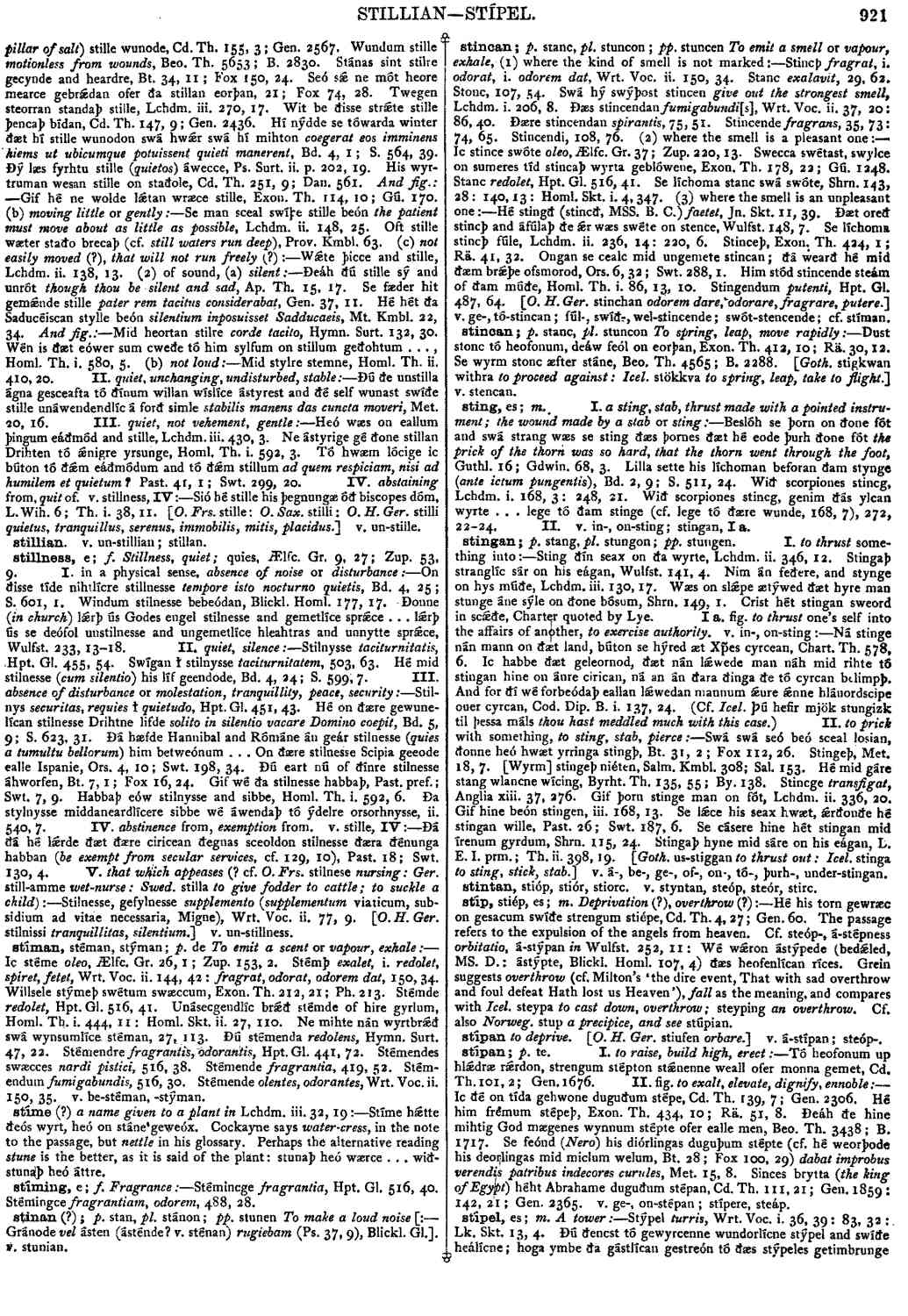stincan
- verb [ strong ]
-
Stincþ
fragrat, i. odorat, i. odorem dat,
- Wrt. Voc. ii. 150, 34.
-
Stanc
exalavit,
- 29, 62.
-
Stonc,
- 107, 54.
-
Swá hý swýþost stincen
give out the strongest smell,
- Lchdm. i. 206, 8.
-
Ðæs stincendan
fumigabundi[s ],
- Wrt. Voc. ii. 37, 20 : 86, 40.
-
Ðære stincendan
spirantis,
- 75, 51.
-
Stincende
fragrans,
- 35, 73 : 74, 65.
-
Stincendi,
- 108, 76.
-
Ic stince swóte
oleo,
- Ælfc. Gr. 37 ; Zup. 220, 13.
-
Swecca swétast, swylce on sumeres tíd stincaþ wyrta geblówene,
- Exon. Th. 178, 22 ; Gú. 1248.
-
Stanc
redolet,
- Hpt. Gl. 516, 41.
-
Se líchoma stanc swá swóte,
- Shrn. 143, 28 : 140, 13 : Homl. Skt. i. 4, 347.
-
Hé stingð (stincð, MSS. B. C.)
faetet,
- Jn. Skt. 11, 39.
-
Ðæt oreð stincþ and áfúlaþ ðe ǽr wæs swéte on stence,
- Wulfst. 148, 7.
-
Se líchoma stincþ fúle,
- Lchdm. ii. 236, 14 : 220, 6.
-
Stinceþ,
- Exon. Th. 424, 1 ; Rä. 41, 32.
-
Ongan se cealc mid ungemete stincan ; ðá wearð hé mid ðæm brǽþe ofsmorod,
- Ors. 6, 32 ; Swt. 288, 1.
-
Him stód stincende steám of ðam múðe,
- Homl. Th. i. 86, 13, 10.
-
Stingendum
putenti,
- Hpt. Gl. 487, 64.
Bosworth, Joseph. “stincan.” In An Anglo-Saxon Dictionary Online, edited by Thomas Northcote Toller, Christ Sean, and Ondřej Tichy. Prague: Faculty of Arts, Charles University, 2014. https://bosworthtoller.com/29003.
Checked: 0